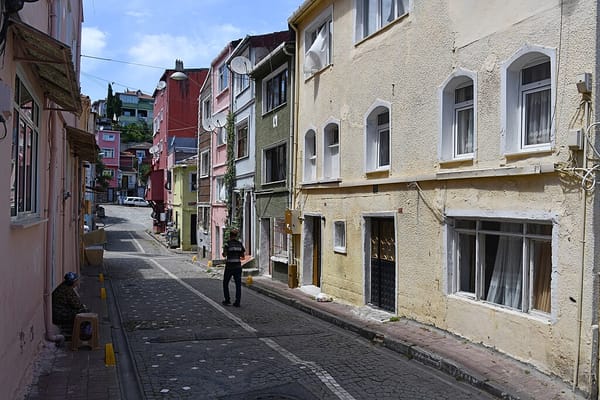Underground University & Battle of Seattle
During the Cold War, Oxford philosophers worked together to aid dissidents behind the Iron Curtain. Also, he protests against the WTO Conference in 1999.

Featured Articles
The underground university
Aeon • 29 Nov 2024 • ~2850 words
During the Cold War, Oxford philosophers worked together to aid dissidents behind the Iron Curtain. I was one of them.
A three-year pathway was put in place for students to write exams and get a diploma from the University of Cambridge that might be of use to them in some future state of the world. At its most risky, the Jan Hus academics became smugglers. The contraband included books and photocopy machines, along with replacement fluid and spare parts, to enable samizdat (ie, clandestine) publications. It also included more mundane things requested by their hosts. When I went on my Brno mission for the Foundation, I brought in video cassettes of popular movies and cash in order to provide stipends to the unemployed and unemployable Czech seminar organisers.
25 Years Ago, the Battle of Seattle Showed Us What Democracy Looks Like
The Nation • 29 Nov 2024 • ~2450 words
The protests against the WTO Conference in 1999 were short-lived. But their legacy has reverberated through American political life ever since.
But the way the WTO functioned was not the primary concern of the protesters. The real issue was the role they felt the WTO played in policies that shut down unionized factories in developed countries and outsourced the labor to poor nations with few labor or safety protections, or the way that certain trade agreements priced in environmental destruction as an externality. A significant number of the protesters in Seattle had gotten their start in the anti-sweatshop movement . . . The brand-new technology of at-home Internet allowed people who were outraged by this state of affairs to connect via e-mail, listservs, and websites. Anti-sweatshop activism became popular among college students, and in 1998, the group United Students Against Sweatshops (USAS) was founded. This organization pressured universities to purchase their branded apparel from factories with fair labor practices. It also served as an incubator for left activism.
Recommended Articles (4 Articles Today)
U.S. Zoos Gave a Fortune to Protect Pandas. That’s Not How China Spent It.
New York Times • 29 Nov 2024 • ~2400 words • Archive Link
A Times investigation found that zoos knew conservation money went toward apartment buildings and roads. But they wanted to keep displaying pandas, so nobody looked too closely.
Early money had gone to what Zoo Atlanta called a “drastic expansion and construction” of a panda breeding center in Chengdu, western China. Millions more went toward infrastructure in and around nature reserves, including roads, buildings, and water hookups — money that regulators questioned. One National Zoo project, a mixed-use building with apartments and office space, was 30 miles from a nature reserve.
Inside the AI back-channel between China and the West
The Economist • 29 Nov 2024 • ~2800 words • Archive Link
Computer scientists are reaching out across the geopolitical divide to try to stop an apocalypse.
With his grey temples and soft voice, Russell comes across as the archetypal scholar. But last year he decided to make a quietly radical intervention into geopolitics. He had worked with many Chinese computer scientists in the past, and was affiliated with Beijing’s Tsinghua University. Using those connections he sought to create a new channel for AI experts from East and West to talk to each other. “Scientists,” he told me, “with a few exceptions, have a common interest in the wellbeing of humanity.”
What the West forgot about democracy
Inside Story • 29 Nov 2024 • ~3150 words
Outsiders promoting political liberalisation in an impatient or immodest spirit shouldn’t be surprised by a backlash.
When we did speak of two other big -isms, capitalism and communism, it was with a wariness about being dragged back into the either/or, good versus evil ways of thinking about politics that had dominated our younger lives. State-based communism had lost the cold war and was probably tainted forever by its authoritarian exemplars. But did that vindicate capitalism? And was its way of producing and distributing social goods suited to democracy?
Retro No More: Interactive Fiction of the Early Comp Era
The Digital Antiquarian • 22 Nov 2024 • ~8350 words
Jimmy Maher writes about the history of text adventures and the Interactive Fiction Competition, which had a very large influence on the genre. He also picks a few competition entries and writes short reviews for them.
But for all the other things he accomplished through his sheer energy, likability, and enthusiasm, the core of Wilson’s claim to being the Indispensable Man in the community will always come down to a single one of the hundreds of messages he posted to Usenet during the 1990s. On June 26, 1995, he announced “The First Annual Text Adventure Authorship Competition,” whose purpose was “to inspire authors to write something, however small, and make it available for people to play. Interactive fiction as a hobby cannot survive unless there are people out there writing and playing it. Hopefully, some of the people who enter the competition will enjoy it, and decide to write more on their own.”




